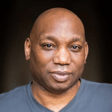
Episode 482: Matthew Wolfe and the Grammar of Delight
"You have to finish it out. You have to report it, even if it's financially a terrible idea," says Matthew Wolfe.
OK, it’s that Atavistian time of the month so we’re here to talk about Matthew Wolfe’s “The Talented Mr. Bruseaux: He made his name in Chicago investigating racial violence, solving crimes, and exposing corruption. But American’s first Black private detective was hiding secrets of his own.” Go to magazone.atavist.com to read it.
So we’ll be hearing from Matt in due time. It’s not Matt’s first story with the Atavist and we talk a little about his first story with the Atavist as well.
Matt is a journalist and I believe he wrapped up a PhD in sociology. He’s got a book coming out next year. We’ll be sure to tout that when the time comes.
Batting leadoff here is none other than lead editor Jonah Ogles. Jonah and I talk about the ideal writer to work with and get into how he edited Matt’s piece
Matt's first Atavist story was “The Ghosts of Pickering Trail.” His work has appeared in the New York Times, the New York Times Magazine, National Geographic, The Atlantic, Harper’s, Pop-Up Magazine, the New Republic … hold on ... maybe I should just read the publications he hasn’t written for. Oh, wait, there are none. Shit. You can find more about Matt at matthewwolfe.net.
Matt likes to lean on TV and screenplays as a means to developing stories. He uses the Dan Harmon Story Circle to help with structure, and I’ll link up to that in the show notes. We talk about not being mercenary about stories and leaning into the ones that won’t let go, and one of the more bizarre recommendations you’ll ever hear.
Newsletter: Rage Against the Algorithm
Show notes: brendanomeara.com



















